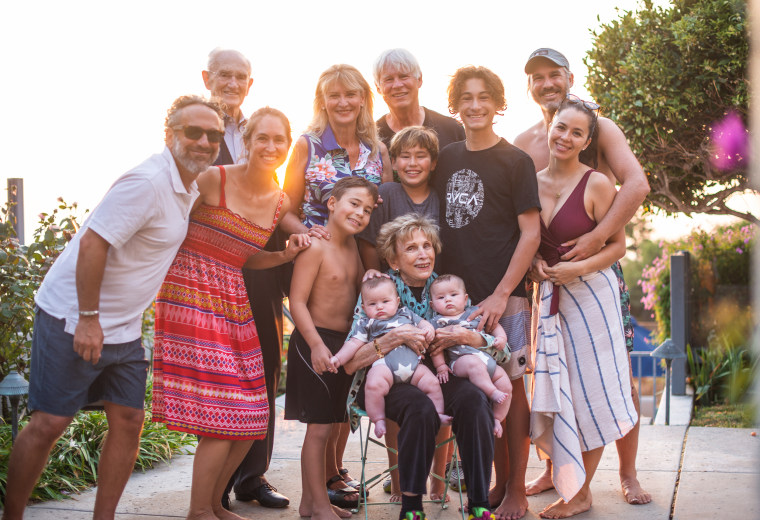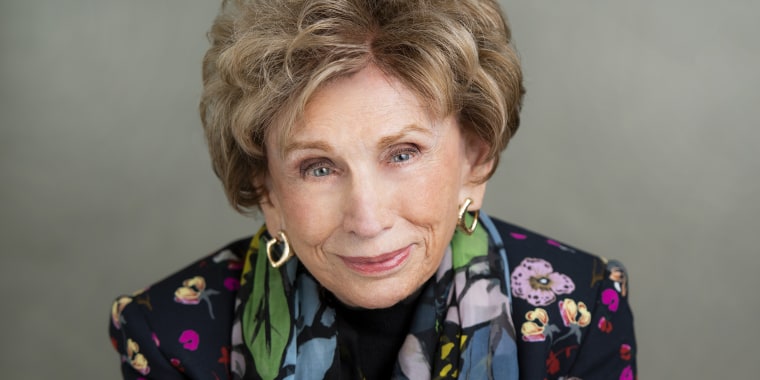At 93, Edith Eger has a lot to say about love.
As a clinical psychologist based in La Jolla, California, she’s still seeing patients, observing that couples most want to talk to her about sex, money and in-laws.
The great-grandmother has a 96-year-old boyfriend and loves swing dancing, though that favorite pastime has slowed down a bit because “his legs are not keeping up,” she said.
A native of Hungary, Eger is also a Holocaust survivor — sent to Auschwitz at 16, where her parents were gassed to death the day the family arrived in 1944. She couldn’t talk about the horrors of the Nazi concentration camp for decades after.
Today, she urges people to break out of their own mental prisons, choosing love, forgiveness and hope over fear, anger and stress — negative emotions that are dominating during the coronavirus crisis — in her latest book, “The Gift: 12 Lessons to Save Your Life.”
Eger talked with TODAY as Valentine’s Day approached, sharing her wisdom about love and reminding others that all the focus on roses and romance isn’t what a real partnership is all about.
“Romantic love — I'm not knocking it at all — but… romantic love usually in marriage will last not more than 18 months,” she said.
“I think falling in love is a chemical high that people get from chocolate.”
Here’s some of her favorite advice about life and relationships:
Start with self-love
Eger advises people to begin the day by looking in the mirror and saying, “I love you, I honor you.” It's not narcissistic — it’s self-care. “You're unique, authentic, one of a kind, so it’s important to celebrate because there will never, ever be another you,” she said. Since all other relationships will end, you are the only one you’re going to have for a lifetime, Eger writes in her book.
Be your own best caregiver — eat well, exercise and have a balance in life. It’s very dangerous to put your whole life into someone else’s hands, she said: “Your life doesn’t depend on what you get or don’t get from someone else.”
Ask yourself: Would you like to be married to you?
What do you like about you? Take an honest inventory and write it down. Start trying to address your problem issues — anger, irritation, resentment — before focusing on problems with others. “This is a wonderful time to acknowledge that if you are not happy alone, you will not be happy with anyone else,” she said.
Love is a four-letter word spelled T-I-M-E
What Eger means by that is it’s necessary to create a balance between working, loving and playing — making sure you devote enough time to yourself and others. “You have a life when it's balanced,” she said. When devoting time to someone or something, ask yourself: Is this going to empower me or deplete me?
Trust your partner
You can’t build a house without the base and when it comes to relationships, that base is trust. “You really trust that the two of you are going to be stronger than you alone,” Eger said. The biggest disruptor of intimacy is low-level chronic anger and irritation, she writes in her book.
It’s OK to argue, but never have sex after a fight
It just reinforces the fighting — “that's not good at all,” Eger said. Conflict is human so when a couple tells her they never fight, she doesn’t believe they have intimacy, either. But couples need to negotiate and compromise, and each partner must give up the need to be right, Eger said.
It’s OK to cry
“What comes out of your body doesn’t make you ill. What stays in there does,” she noted. “The opposite of depression is expression.”

There is no such thing as midlife crisis, but there is midlife transition
Eger still remembers a supervisor urging her to get a doctorate degree when she was 40. “I said it's impossible. By the time I get a doctorate, I’ll be 50, and he told me, ‘You'll be 50 anyway.’”
Don’t cover garlic with chocolate — it doesn’t taste good
In other words, don’t deny your feelings and don’t pretend away your pain, Eger writes. If something in the relationship or your life doesn’t feel right, acknowledge it. Fear and love do not coexist.
Forgive
Forgiveness is something you do for yourself, not the other person. “It's OK to be angry as long as you don't allow it to lead to resentment because when I'm angry at you, you don't suffer, I do,” Eger said. “Change your thinking because we create what we think.”




